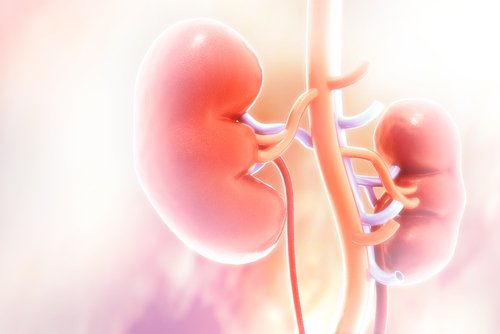Clinical Trial Results Demonstrate Voclosporin’s Long-term Benefits for Lupus Nephritis Patients
Written by |

Voclosporin, an investigational therapy developed by Canada’s Aurinia Pharmaceuticals, is more effective at treating lupus nephritis (LN) than other calcineurin inhibitors, according to data from the ongoing Phase 2B AURA-LV (AURA) trial (NCT02141672).
Dr. James Tumlin, the study’s lead author and clinical investigator, gave a presentation, “Steroid Sparing Efficacy of Voclosporin in Active Lupus Nephritis: Stable Kidney Function and Blood Pressure without Electrolyte Complications at 48 Weeks,” at the 54th European Renal Association-European Dialysis and Transplant Association Congress (ERA-EDTA) held June 3-6 in Madrid.
Voclosporin, a new immunosuppressant medicine, can block IL-2 expression and activation of T-cell immune responses. This dual activity has the potential to improve short- and long-term effects in LN when added to standard of care.
The AURA trial included 265 LN patients who were randomized to receive a low (23.7 mg) or high (39.5 mg) dose of voclosporin, or placebo, in addition to standard care with mycophenolate mofetil — marketed under the name CellCept, among others — and low doses of corticosteroids for 48-weeks.
Results at the 24-week endpoint showed significant improvements on achieving complete remission and partial response compared to placebo. The latest 48-week endpoint results demonstrated continued improvements in the voclosporin group over the control group.
About 49 percent of the low-dose and 40 percent of the high-dose patients achieved complete remission, compared to 24 percent in the placebo group. In addition, 68 percent of low-dose and 72 percent of high-dose patients achieved partial remission, the trial’s secondary outcome measure. None of the patients who achieved complete remission at 24 weeks relapsed, demonstrating vocolosporin’s long-term efficacy.
Over the 48-week treatment period, voclosporin-treated patients also showed improved levels of proteinuria and reduction in Systemic Lupus Erythematosus Disease Activity Index (SLEDAI) scores. In addition, they also presented stable blood magnesium and potassium concentrations, and stable blood pressure, which are commonly altered upon treatment with other calcineurin inhibitors and are often associated with renal impairment.
“We were very encouraged to observe that voclosporin therapy resulted in significantly improved remission rates without compromising renal function and blood pressure or inducing electrolyte disorders,” Tumlin, founder of the Southeast Renal Research Institute in Chattanooga, Tennessee, said in a press release. “Prolonged steroid therapy for lupus nephritis is associated with unwanted side effects, and a reduction in steroid dose should be a treatment goal. These encouraging data suggest that voclosporin can induce clinical remissions with low-dose steroids while minimizing renal toxicity.”
Overall, the treatment was well tolerated, with no major adverse effects being reported during the trial, and no significant differences between the voclosporin and the placebo groups. The most common adverse events reported were diarrhea, vomiting and upper respiratory tract infection.
“The data provides us with a high degree of confidence that we can execute a successful Phase 3 program and make a meaningful impact on patients’ lives,” said Dr. Neil Solomons, chief medical officer at Aurinia. The company, based in Victoria, British Columbia, will present additional results of the AURA trial in upcoming international meetings.




